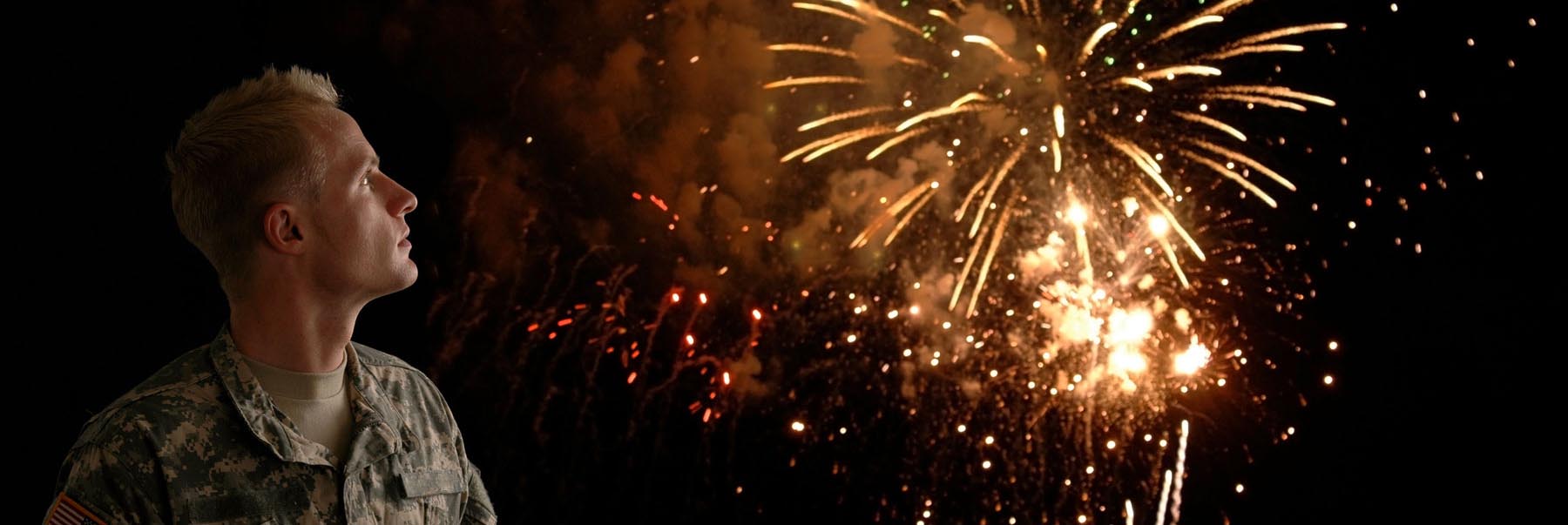How to Cope with Fireworks if You Have PTSD

In a parade scene from the movie “Born on the Fourth of July,” a soldier in a wheelchair can be seen flinching at the sound of firecrackers.
This clip perfectly depicts how some veterans feel on Independence Day, according to Dr. Spencer Eth, professor of psychiatry at the University of Miami and Chief of Mental Health at the Miami VA Healthcare System. Specifically, those with post-traumatic stress disorder (PTSD) may react unfavorably to the sights and sounds associated with the national holiday.
According to the U.S. Department of Veterans Affairs, 86 percent of service members in Iraq in 2006 experienced enemy fire and between 11 to 20 percent of all war veterans have PTSD.
“Flashing lights and the loud noises created by fireworks may be triggers for veterans, especially for those who have been in combat situations,” says Dr. Eth. “You may be having a wonderful time, but what they experience is much different – a cherry bomb may sound like a grenade to them.”
What is PTSD?
PTSD is a disorder that some people develop in response to experiencing trauma. Many different types of events can cause PTSD like hurricanes, sexual abuse, or serving in combat. Symptoms include reliving the event, being easily startled, difficulty concentrating, debilitating fear and anxiety, and having negative thoughts. These symptoms can be triggered by being in situations that remind the person of the trauma they experienced.
“For veterans with PTSD, fireworks can trigger flashbacks, or feelings of panic and dread,” explains Dr. Eth. “It can take a longer time for them to regain composure.” Some of the veterans that he treats at the VA have talked about how difficult the Fourth of July can be, he says. Some have even said that they are spending the holiday out of town to avoid the Miami fireworks.
Limiting triggers
Not everyone can travel away from home for the holidays, but there are things you can do to help limit triggers. Listening to music with headphones, meditating, or even seeing a movie at a movie theatre during firework displays can help with symptoms.
Communication is key. Talk to your neighbors and ask them to be considerate. Dr. Eth believes that most people would be understanding. “These veterans are our heroes,” he says. “If they were in a wheelchair, we would offer assistance; PTSD is similar, and veterans need not be ashamed when they are having a harder time.” Perhaps request that they limit fireworks to just the evening of the 4th of July so that you can be prepared.
The Veterans Crisis Line connects veterans and their families and friends with caring VA responders 24/7 through a confidential toll-free number: 1-800-272-8255 or by text at 838255.
Natasha Bright is a contributing writer for the UMiami Health News blog.
Tags: Dr. Spencer Eth, fireworks safety, Independence Day, ptsd, veterans
